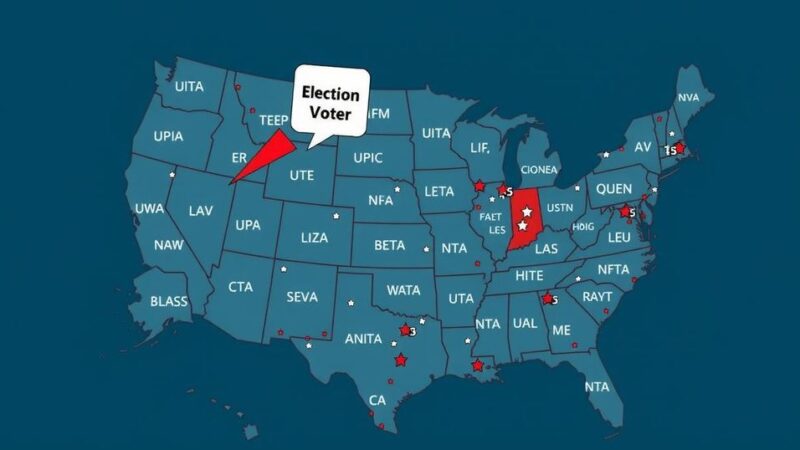The article discusses the duality of perception in society during election seasons, emphasizing the importance of addressing pressing social issues, particularly childcare, amidst the prevailing political grievances. It critiques current priorities reflected in polling, which often divert focus from essential concerns like healthcare and education towards scapegoating. Ultimately, it calls for a return to empathy and understanding in political discourse, advocating for substantive discussions on collective grievances and hope.
As I reflect amidst the backdrop of a hurricane approaching the Gulf Coast of Florida and New Hampshire’s autumnal scenery, it is evident that the world oscillates between chaos and beauty. Presently, global conflicts demand significant sacrifices from many in the name of protection and peace. A recent comment from a New Hampshire Republican lawmaker highlights a pervasive concern regarding leadership during such turbulent times, suggesting a lack of confidence in the current administration’s ability to manage escalating global unrest. This sentiment raises the question of historical stability; has there been a time devoid of strife? The reality is that the world has always presented a duality of experiences: chaos and beauty, cruelty and love. Elections serve as a crucial lens through which we view these competing realities, compelling us to articulate grievances while simultaneously seeking hope linked to preferred candidates. However, citizens have increasingly outsourced both grievances and hope, making it difficult to address pressing issues individually. For instance, U.S. Representative Ro Khanna proposed the “Child Care for America Act,” which aims to elevate child care to essential infrastructure status at a proposed annual cost of $100 billion. This initiative seeks to address a significant concern faced by countless American families: the prohibitive costs of child care, which compel both parents to seek employment often without sufficient financial return. Nonetheless, despite the importance of child care as a social issue, it was notably absent from recent polling data, which indicates that American voters prioritize the Economy/Inflation, Border Security, and Elections/Democracy over critical daily challenges such as Health Care and Education. The skewed prioritization of grievances reflects a concerning trend, whereby the discourse is diverted toward manageable scapegoats, such as undocumented migrants, instead of addressing fundamental socio-economic issues. Such scapegoating serves the interests of a political establishment that seeks to fragment lower and middle classes by manipulating fear and redirecting anger. Despite the dark rhetoric evident in contemporary political discourse, I maintain an abiding faith in the kindness and empathy present within individuals. The political climate has fostered a culture of fear, with online antagonism gaining traction and overshadowing civil society’s better instincts. My prevailing grievance lies with the society itself, where fear is easily exploited for the sustainment of power. In contrast, my hope continues to rest with the populace, who embody resilience and the capacity for change in the face of adversity. In conclusion, as we navigate the complexities of this election season, it is paramount to foster discussions that underscore enduring societal issues such as child care and the eradication of systemic grievances that inhibit collective progress. In an era loaded with strife, those dedicated to empathy and understanding must raise their voices to ensure that the election dialogue reflects the true needs of the people rather than succumbing to fear-driven narratives.
The commentary highlights the pervasive duality present in society, particularly during election seasons, where emotions oscillate between hope and grievance. The author contextualizes contemporary challenges, including global conflict, economic strain, and social issues such as child care, emphasizing the importance of these topics in public discourse. By contrasting significant political actions and proposals with current polling priorities, the author argues that the public’s attention is often misdirected towards scapegoats rather than addressing underlying systemic problems.
In a politically charged environment, the need for focus on substantive issues such as child care and social equity is crucial. It is essential that the electorate examines their grievances critically and engages with hopeful initiatives that can provide lasting solutions. Addressing these systemic challenges with empathy and understanding will ultimately lead to a more informed and responsive political discourse.
Original Source: newhampshirebulletin.com






